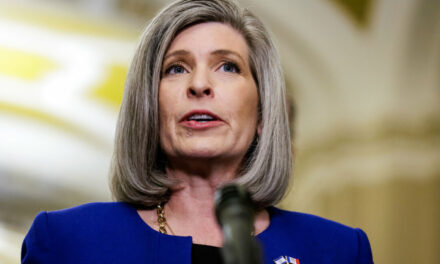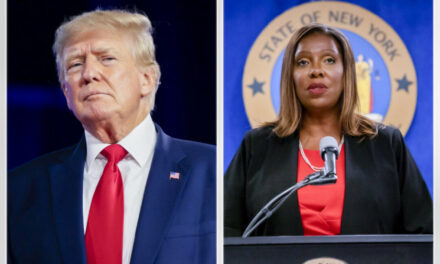We support our Publishers and Content Creators. You can view this story on their website by CLICKING HERE.
The bill would have expanded state drone-tracking authority, but Paul had concerns over privacy and data collection.
WASHINGTON—Sen. Rand Paul (R-Ky.) on Dec. 18 blocked a bill proposed by Majority Leader Chuck Schumer (D-N.Y.) authorizing state and local law enforcement to track unidentified drones recently sighted in New Jersey, New York, and other states on the East Coast.
“The federal government needs help from local officials detecting these drones. But right now, the locals have neither the authority nor the resources to act. Our bill will fix that,” Schumer said ahead of the bill’s introduction.
“This body must not rush to grant sweeping surveillance powers without proper consideration and debate by the committees of jurisdiction, which is what I pledge to do beginning in January when we will be in charge of the committees,” he said.
Paul said the legislation would expand federal powers to “intercept communications and disrupt drone activities,” allowing agencies to surveil the cellphone data of large swaths of the population while sweeping for drones.
Comparing the legislation to the Patriot Act, he said it was an instance where “fear and manufactured urgency are used as a pretext to expand government power in the name of freedom.”
Previous drone-tracking legislation is set to expire on Dec. 20; it was wrapped into the 2018 Federal Aviation Administration (FAA) funding.
The House has introduced legislation, the Counter-UAS Authority Security, Safety, and Reauthorization Act, which will renew and expand the previous program and extend it until 2028.
The new House bill mandates, among other changes, the creation of a counter-drone program within the DHS.
Pfluger, who is chairman of the House Homeland Security Subcommittee on Counterterrorism, Law Enforcement, and Intelligence, also noted the 20,000 reported incidents of Mexican drug cartels using drones as part of their operations near the southern border.
More recently, in the northeast, drone sightings began in mid-November and, at first, were localized to a few counties in New Jersey.
Witnesses say the drones are the size of an SUV and utilize highly sophisticated technology. They have been observed in groups as large as 50 and were seen tailing a ship operated by the U.S. Coast Guard.
Schumer, on Dec. 15, asked the government to use recently declassified drone detection technology to determine the origin and nature of the flying machines.
Hochul said the federal government was sending state-of-the-art drone-detecting technology to New York. This move was prompted by the shutdown of Stewart International Airport due to a drone sighting.
“I am grateful for the support, but we need more,” Hochul said.
Schumer said several government agencies, including the FBI, DHS, and FAA, support the latest legislation.
However, the agencies said the sightings had mundane explanations: “a combination of lawful commercial drones, hobbyist drones, and law enforcement drones, as well as manned fixed-wing aircraft, helicopters, and stars mistakenly reported as drones.”
Pentagon press secretary Sabrina Singh said during a press conference on Dec. 11 that the agency had no evidence the drones were “coming from a foreign entity or adversary.”
She also refuted a statement by Rep. Jeff Van Drew (R-N.J.), who said he’d received intel that the drones were being launched from an Iranian “mothership” cruising off the East Coast.

 Conservative
Conservative  Search
Search Trending
Trending Current News
Current News 







